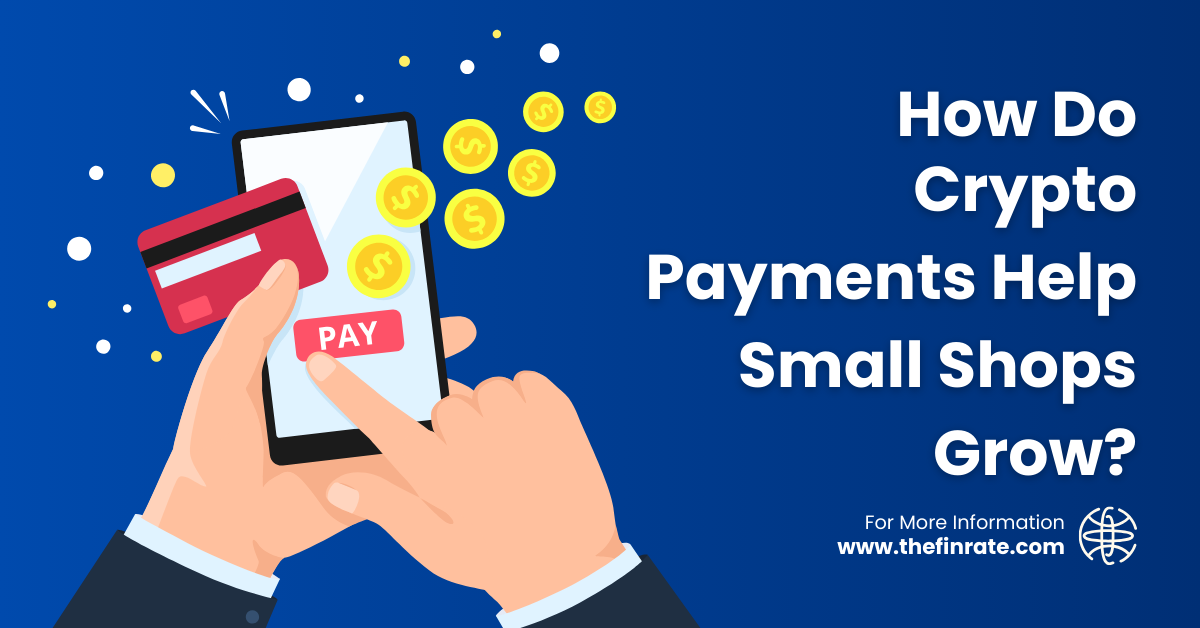In today’s digital-first economy, small shops are seeking innovative ways to expand and stay competitive. One game-changing solution is the crypto payment system. By accepting cryptocurrencies like Bitcoin, Ethereum, and stablecoins, small businesses can tap into a global market, reduce transaction fees, and enhance customer trust.
This article explores how crypto payments help small shops grow and why this fintech trend is worth considering.
What Is a Crypto Payment?
A crypto payment refers to a transaction where customers pay using digital currencies instead of traditional money (fiat). These payments are processed over blockchain networks, ensuring transparency, security, and low transaction costs.
Businesses can receive payments in crypto directly or use a crypto payment gateway that converts the crypto into fiat currency instantly.
Benefits of Crypto Payments for Small Shops
1. Access to a Global Customer Base
One of the biggest advantages of crypto payments is borderless transactions. Traditional payment systems often come with cross-border fees and regulatory hurdles. With crypto, a small shop in India can seamlessly sell products to a customer in Germany without dealing with currency conversions or high transaction costs.
2. Lower Transaction Fees
Credit card and payment processors like PayPal typically charge 2.5%–3.5% per transaction, which eats into profit margins. In contrast, crypto payment gateways charge much lower fees—often around 0.5% or less.
3. Fast Settlement and Better Cash Flow
Crypto transactions settle in minutes—not days. This improves cash flow, especially for shops that rely on quick capital turnover. Faster payments mean faster re-stocking, smoother operations, and better customer service.
4. No Chargebacks or Fraud Risks
Chargebacks from customers can be a nightmare for small businesses. Since crypto payments are irreversible, they eliminate the risk of fraudulent disputes and unexpected losses. This is especially beneficial for eCommerce shops prone to digital fraud.
Why Are Small Businesses Turning to Crypto?
According to a survey by Deloitte, over 75% of merchants plan to accept crypto within the next few years. Here's why:
- Younger, tech-savvy consumers are using crypto wallets.
- Crypto offers an inclusive payment method for unbanked or underbanked populations.
- Volatility is reduced with stablecoins like USDT or USDC.
- More crypto payment processors now offer easy-to-integrate plugins and APIs.
Real-World Use Case: A Coffee Shop Accepting Bitcoin
Imagine a small coffee shop that integrates crypto payment options alongside cash and card. Tourists with Bitcoin or Ethereum can pay instantly, and the shop can auto-convert the crypto into local currency using a gateway like BitPay or NOWPayments.
This not only boosts sales but also attracts a new, tech-savvy customer base.
How to Accept Crypto Payments in a Small Shop
1. Choose a Crypto Payment Gateway
Some popular options include:
- BitPay
- NOWPayments
- Coinbase Commerce
- Binance Pay
- TripleA
These platforms offer plugins, QR code payments, and fiat settlement.
2. Integrate It with Your POS or Website
Most crypto payment services provide easy plugins for platforms like Shopify, WooCommerce, Magento, or a simple QR code for offline use.
3. Educate Your Staff and Customers
Make sure employees understand how to process crypto payments. Add signage that says “We Accept Crypto” to inform your customers.
4. Manage Volatility
Use gateways that offer instant conversion to fiat or only accept stablecoins to reduce exposure to crypto market fluctuations.
Is It Legal to Accept Crypto Payments?
The legality of crypto varies by country. Many regions allow businesses to accept crypto with basic compliance, such as KYC/AML checks. Always consult a legal advisor and choose a compliant crypto gateway licensed in your country or region.
Key Tips for Getting Started
- Start small: Enable one or two cryptocurrencies like BTC or USDT.
- Choose a low-fee, reliable payment gateway.
- Promote your crypto acceptance on social media and your store.
- Consider using stablecoins to reduce volatility.
- Maintain accurate tax and transaction records.
Also Read: 10 Best Crypto Payment Gateways for International Business
Final Thoughts
Accepting crypto payments can unlock new opportunities for small shops—offering faster settlements, lower fees, and access to global customers. It also positions your business as forward-thinking and adaptable to changing financial technologies.
If you’re a small business owner looking to grow in the digital era, crypto payments might be your next big move.
✅ Explore trusted crypto payment gateways and reviews at TheFinRate — your go-to fintech directory for expert insights.
FAQs
1. Is it safe to accept crypto payments?
Yes, if you use reputable gateways that follow KYC, AML, and offer strong encryption and fraud protection.
2. Do I need to hold crypto?
No. Most gateways allow instant conversion to fiat currencies like USD, INR, or EUR.
3. Can I accept crypto payments without a website?
Yes. Many crypto payment providers offer offline QR code options or POS integration.
4. Are crypto payments taxed?
Yes. You must report earnings as per your local tax laws. Some gateways provide transaction history for tax filing.
